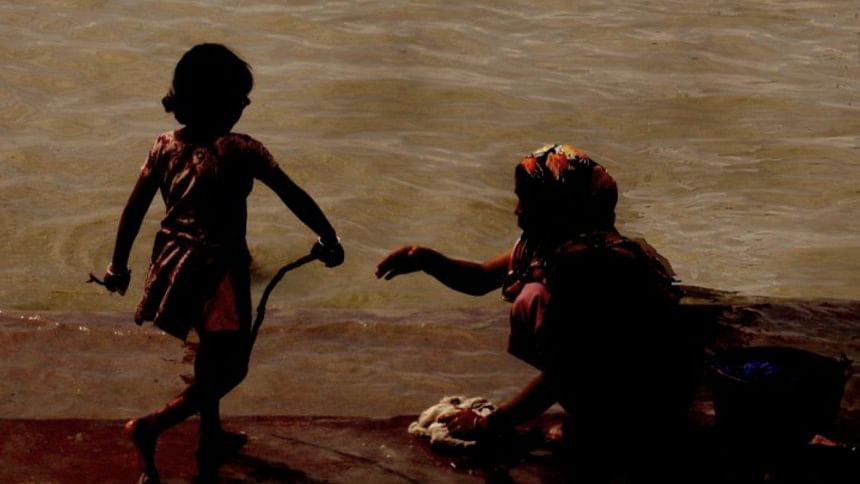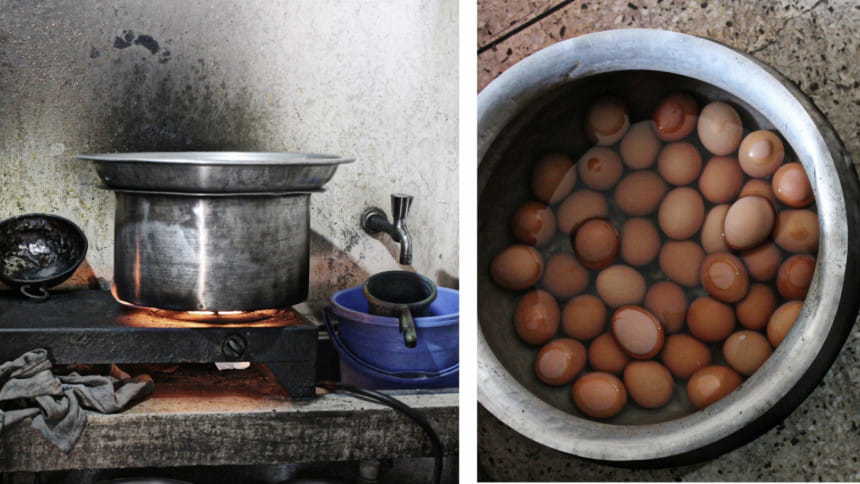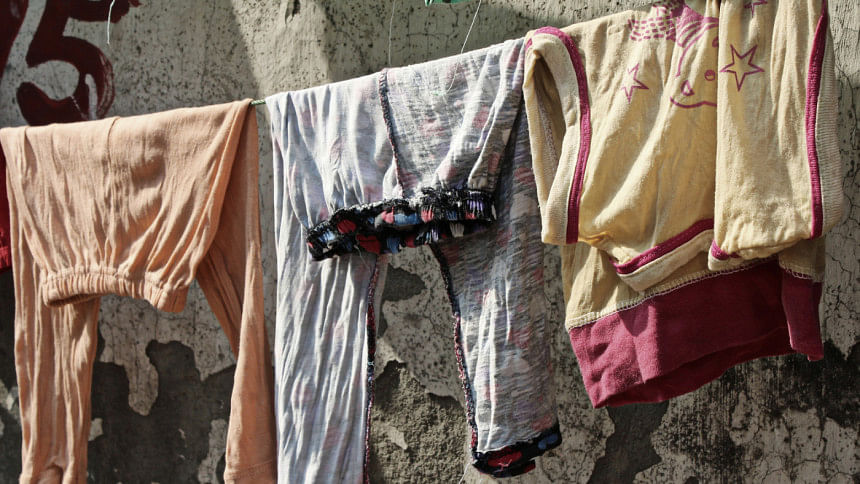Why do rape cases stay out of court?

Despite the frequent media reports of rape in Bangladesh, existing studies suggest that most rape survivors do not take legal action. A 2015 UN multi-country study on male violence (which surveyed perpetrators of rape) found that 95 percent of urban respondents and 88 percent of rural respondents in Bangladesh reported facing no legal consequences for raping a woman or girl. Additionally, data from the One-Stop Crisis Centre (OCC) show that out of the 16,804 rape survivors who sought treatment between 2001 and 2013, only 3,747 took legal action, meaning 78 percent chose not to pursue legal action even after taking the initial step of seeking medical treatment. As statistics on rape incidents and rape prosecutions are not publicly or holistically available in Bangladesh, we have to rely on these two (now dated) reports from the UN and OCC. Nevertheless, these figures starkly demonstrate that the vast majority of rape victims and survivors are precluded, for one reason or another, from accessing justice in Bangladesh. Therefore, it is important to identify and understand the precise obstacles faced by rape victims and survivors which work to prevent most of them from reaching the court.
To this end, a colleague and I had undertaken some research in 2018, as part of which we interviewed three female paralegals working for Bangladesh Legal Aid and Services Trust (BLAST): Ananya Chakroborty, Nafija Akter and Rahima Khatun. All three of them were placed in the various one-stop legal aid clinics (known as "hubs") established inside several urban slums in Dhaka as part of Shokhi, a consortium project implemented between 2013 and 2017.
Through these hubs, paralegals would provide frontline legal services to women and girls facing violence and rights violations inside the slums and build legal awareness. The paralegals also conducted capacity building programmes to train young women as "change makers" who would act as first responders to violence against women and girls in their communities. Below are two cases discussed during the interviews which might help shed light on why, despite legal aid being offered at their doorsteps, two rape survivors were unable to take legal action.

Munia cannot speak
Munia, aged between nine and 12 years, looked utterly lost in a busy Beribadh marketplace when Ananya, a paralegal working for BLAST, spotted her. Suspecting the child to be lost, Ananya approached her and offered to take her to the nearest police station so she could be safely returned to her parents or guardians. Together, they boarded a rickshaw.
While on the rickshaw, the child slowly began opening up to Ananya and mentioned that she had recently come to Dhaka from her village to work as a domestic help in a nearby apartment complex. She confessed to having escaped from the apartment earlier that day and expressed deep reluctance to go back there. Between the child's incoherent murmurs, Ananya noticed that Munia was quite visibly and deeply traumatised as she faced great difficulty in responding to some basic questions that were posed to her.
Upon being pressed on why she did not want to return to her employer's apartment, Munia said, "Amar mama amar shathe kharap kaj kore" (My uncle does bad things to me). This insinuation hardly came as a surprise to Ananya as she knew from her experience in the legal aid sector that sexual abuse of domestic workers was quite rampant in Dhaka, especially for minor girls.
After arriving at the police station, the on-duty officer was very cooperative and receptive to Ananya's concerns about Munia possibly being a victim of sexual violence. However, in spite of Ananya's best efforts and requests, Munia found herself unable to relay her story to the police officer and incapable of responding to his preliminary queries.
Ananya requested the officer to be gentler and more patient with Munia, explaining that the child was still in shock. Eventually, after the officer was largely unsuccessful in extracting a statement from Munia, Ananya briefed him about what had happened in light of her earlier conversation in the rickshaw, explaining why it would be dangerous to return the child to her workplace in Dhaka and that she should directly be sent to her parents instead.
However, within moments, the employer's family arrived at the station and put on what seemed to Ananya an ostentatious show of concern towards Munia. Farida Begum (Munia's employer) exclaimed: "O kothae gesila, tomake toh amra khujte khujhte hoiran. Tumi na kaj korte chaile bolba amader ke, palay jawar ki dorkar?" (Where have you been? We have been so worried and tired looking for you! If you do not wish to work, you can just tell us, why run away?)
Farida then called the child's parents to scold them and scathingly asked why they had sent over a girl who did not want to work and instead had the audacity to run away. She commanded Munia's parents to come and collect their daughter at once, since it was clear that she was unfit to be a domestic help, and then abruptly hung up the phone.
Turning to the police officer and Ananya, Farida candidly accepted that occasionally they would scold Munia but that could be no reason for her to run away. "Amra tomake ki kom disi? Amra tomake koto ador kori. Tao tumi ebhabe na bole palae gela, shudhu ektu bokar jonno?" (What didn't we provide you with? We cared so much for you but you still ran away for a little scolding?) Farida's theatrics—which appeared rehearsed—led Ananya to suspect that she was trying to conceal the real reason for Munia's escape.
Afterwards, Farida and her family spotted a vacant room in the station and sought to speak privately with the police officer and Munia there. Despite Ananya's repeated insistence on being there, the police officer refused to allow her to be a part of the meeting. Ananya did not know what exactly took place inside the confines of the closed room but after the meeting ended and they stepped out, Munia's behaviour and the police officer's attitude completely changed.
Munia no longer expressed any reluctance to go back to the apartment with Farida and the police officer, too, became sceptical of anything Ananya had previously said. Ananya tried to discreetly request him to speak to Munia in private, so she would have an opportunity to open up without the pressure of being in the presence of Farida and her family. However, the police officer did not seem to think this was necessary and was convinced that the matter had been adequately resolved.
Ananya then tried to convince Munia to reiterate the story but to no avail. The moment of trust and confidence which had transpired between the two in the rickshaw, seemed to have disappeared from the child's memory. Munia's silence, coupled with the police officer's newly adopted scepticism, made it appear as though Ananya alone was making a mountain out of a molehill and concocting a story of sexual abuse. A consensus had been reached: Munia had merely run away from the house in reaction to a bit of scolding and now she would be safely returned to her parents.
Farida and her family members were over-friendly with Ananya, graciously thanking her for finding Munia and assuring her that there was no reason to worry as she was now in safe hands and would be collected by her parents soon. They called a rickshaw for her and even offered to reimburse her for the rickshaw fare, which Ananya politely declined.
Feeling helpless and defeated, Ananya hopped on a rickshaw and debated whether she had done everything in her power to try and save Munia.

Protecting Marium's honour
Ten-year-old Marium came running to her grandmother, Shahjadi, in tears, and in a shaken voice told her what had just happened to her. She was on her way out of the communal bathroom when a middle-aged man forced himself upon her. Shahjadi's heart sank, not only because of what her granddaughter had to endure but also because Marium, in her childish naivety, uttered the unutterable, in the presence of other women—their neighbours and fellow slum dwellers. Among these women was Jorina, an active change maker, who immediately advised Shahjadi to visit the nearby legal aid hub. However, seeking legal aid and filing a case was the last thing on Shahjadi's mind. All she could think about was protecting her granddaughter's "honour" and family reputation. It would be difficult enough to secure a "good marriage" for Marium, a girl from the slums, but if word got out that she was also a rape victim, that would almost eradicate any chances of her ever being able to get married, thought Shahjadi.
She had made up her mind: not a word about this incident was to go outside that shanty. She pleaded with the women in the room to forget what they had just heard and to refrain from telling anybody, for Marium's sake. At the same time, she was hastily arranging for a bucket of water, so that Marium could be bathed and the dress she was wearing during the unfortunate incident could be washed and stashed away at once.
Jorina knew from her training sessions about the importance of preserving evidence such as articles of clothing to seek justice for sexual violence. She tried to stop Shahjadi and kept on insisting that she at least visit the nearby legal hub once before deciding to destroy the key piece of evidence once and for all. Upon realising that Shahjadi could not be convinced, Jorina informed Nafija, the paralegal posted in the legal aid hub, about the incident right away. Nafija then duly informed the police about what had happened and was on her way to Shahjadi's shanty to speak to her. In the meantime, Jorina continued stalling Shahjadi from bathing Marium and having the dress washed.
A few moments later, Nafija arrived and joined Jorina in trying to convince Shahjadi to take legal action. Meanwhile, word about the incident had spread throughout the heavily populated slum. Influential members of the community appeared and were lending support to Shahjadi's decision against taking legal action.
Soon after, a police officer arrived at the scene and tried to quash the commotion. The community elders and Shahjadi assured the police that nothing untoward had happened and that a petty incident had been needlessly and disingenuously blown out of proportion by the paralegals. Nafija could hear members of the crowd murmur that "ei NGO kormi gula amago majhe oshanti srishti korte ashche" (these NGO workers have come here to create unrest among us). Nafija tried to explain to the police officer what had actually happened. However, the disinterested police officer made it clear that if the guardian of the alleged rape victim did not show any interest in filing a complaint, then there was nothing he could do. When Nafija kept on persisting, the police officer lost his temper and accused Nafija of pushing Shahjadi to file a complaint against her will. Shahjadi, too, took this opportunity to scold Nafija and accused her of trying to impose her "NGO agenda" on them and asked to be left alone. As the police officer began to walk away, and Shahjadi proceeded towards the bucket of water, Nafija felt that the only option she had was to walk away, too.
Lessons from these cases
It is important to bear in mind that paralegals like Ananya and Nafija have in general played a very cardinal role in bringing hundreds of rape cases to court, which would otherwise have remained outside it. The deliberate focus on two stories of failure, rather than success, is not intended in the slightest to undermine the indisputable accomplishments of paralegal intervention. The purpose is to help readers understand why certain rape survivors were pre-empted from bringing their case to court despite legal assistance being offered to them.
From these two case studies (and others like them), we found that the main pre-trial barriers are heavily interlinked and multi-faceted and, therefore, work in tandem to keep rape survivors out of court. Firstly, there is family reluctance to take legal action due to the immense, if misplaced, social stigma surrounding victims of sexual violence. Lack of awareness about relevant legal and procedural processes on the part of the rape survivors and their families further reinforces the reluctance to take action. Secondly, even when rape survivors and their families overcome the stigma and wish to take action, they may be met with violent suppression from influential community leaders, usually because the rapist is someone they want to protect. Thirdly, rape survivors may be further hindered from seeking justice due to the failure on the part of law enforcement agencies to properly discharge their duties.
Due to these three factors, shalish or out-of-court settlement through informal community mediation becomes particularly operative in rape cases as it provides a convenient alternative to litigation for all parties involved. Due to the stigma attached and the desire to protect the "family honour", families of rape survivors wish to pursue a quick, economic and discrete remedy. Court cases, on the other hand, take years, if not decades, to conclude and entail a lot of costs (even when legal aid is received) and some degree of publicity. The community leaders, even when uninterested in protecting the rapist involved, consider each incident of rape as an opportunity to make money as mediators of the shalish (since they receive a sizable portion of the settlement amount) and therefore have a clear financial interest in keeping the cases out of court.
Munia and Marium's cases should invoke deeper reflections about the range of complex and intertwined factors which work to keep rape survivors out of court, so that we can address these challenges and work towards creating a reality where prosecuting rape becomes the norm, rather than the exception.
This piece is a slightly edited extract from the research report titled "Why Rape Survivors Stay Out of Court: Lessons from Paralegal Interventions" published by BLAST in 2018. Other than the names of the paralegals, pseudonyms have been used for all others mentioned in the case studies.
Taqbir Huda is a Research Specialist at Bangladesh Legal and Services Trust (BLAST), where he leads the Rape Law Reform Now campaign. Email: [email protected]

 For all latest news, follow The Daily Star's Google News channel.
For all latest news, follow The Daily Star's Google News channel. 



Comments